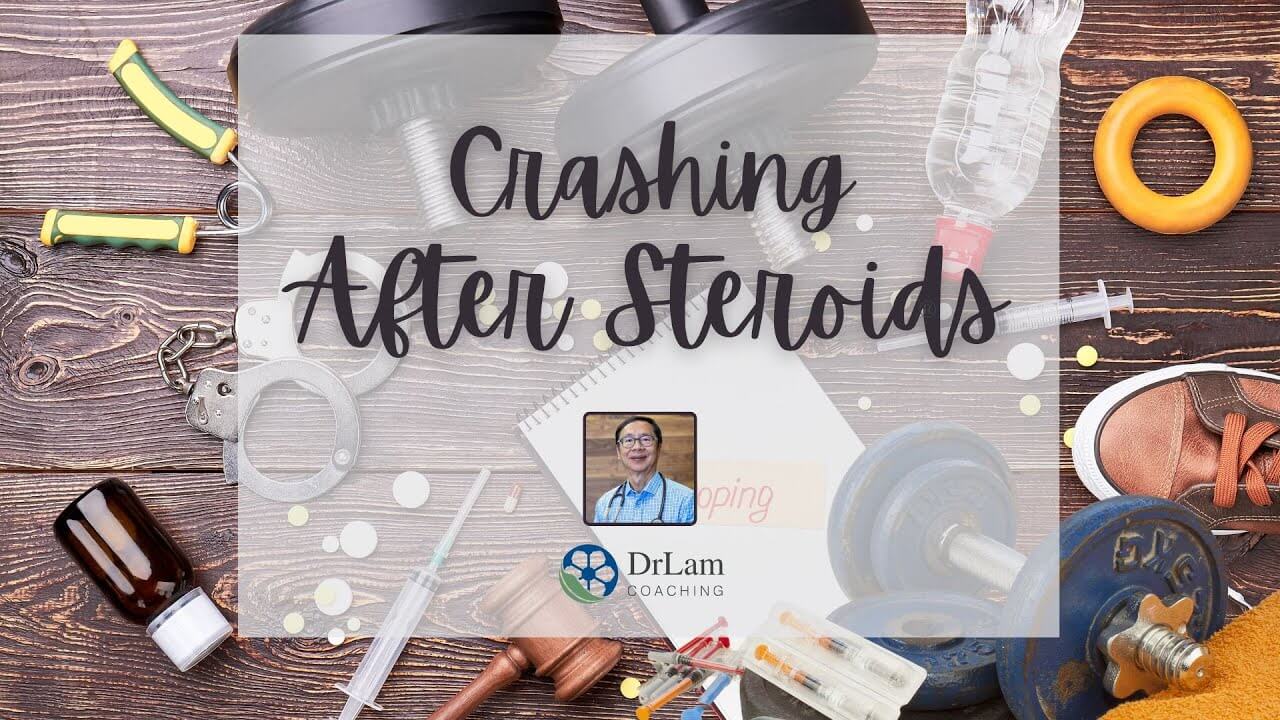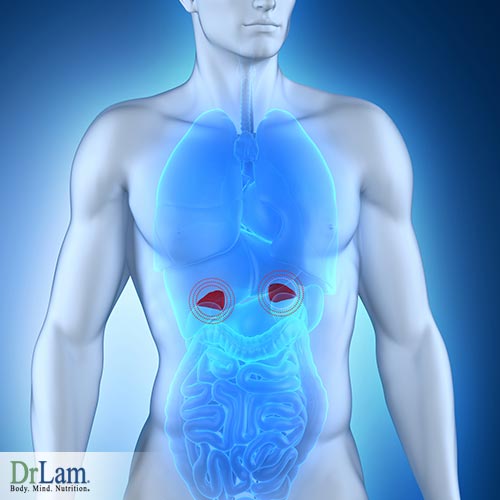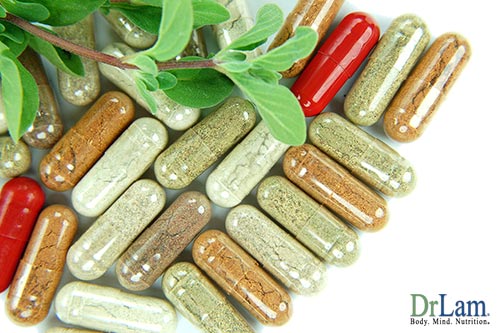
Stress is unavoidable in the world we live in today. Instead, the best option is to take steps to effectively manage stress. Your body is equipped with a self-healing system. In order to deal with stress, the adrenal glands of your body produce certain natural steroid hormones. These anti-stress hormones are vital to keeping you going. Steroids and adrenal insufficiency are interconnected.
 When your adrenal glands do not secrete adequate anti-stress steroid hormones, your body’s ability to cope with stress is reduced. This can be associated with adrenal fatigue. When adrenal glands fail to produce cortisol, a medical condition known as adrenal insufficiency can surface. Adrenal insufficiency is a recognized medical condition requiring lifelong steroid replacement. Adrenal fatigue is, on the other hand, not recognized by mainstream medicine, but sufferers have many symptoms similar to adrenal insufficiency, though in different intensity. Regardless of whether it is adrenal fatigue or steroids and adrenal insufficiency, it is crucial to allow your adrenal glands to heal naturally. This, in turn, will restore and repair your adrenal glands thus helping to normalize adrenal function.
When your adrenal glands do not secrete adequate anti-stress steroid hormones, your body’s ability to cope with stress is reduced. This can be associated with adrenal fatigue. When adrenal glands fail to produce cortisol, a medical condition known as adrenal insufficiency can surface. Adrenal insufficiency is a recognized medical condition requiring lifelong steroid replacement. Adrenal fatigue is, on the other hand, not recognized by mainstream medicine, but sufferers have many symptoms similar to adrenal insufficiency, though in different intensity. Regardless of whether it is adrenal fatigue or steroids and adrenal insufficiency, it is crucial to allow your adrenal glands to heal naturally. This, in turn, will restore and repair your adrenal glands thus helping to normalize adrenal function.
Excess stress is the main reason for adrenal fatigue. Factors that trigger stress are known as stressors. Below are some of these stressors that we face in daily life:
Poor diet, chronic disease, inadequate sleep and emotional stress are other factors that contribute to adrenal insufficiency.
Adrenal insufficiency occurs when the adrenal glands of your body do not produce adequate steroid hormones, principally cortisol and sometimes accompanied with low production of aldosterone as well. This can be documented by low cortisol level in laboratory tests. Your body has a pair of adrenal glands each situated above a kidney. Adrenal glands are the center for the production of vital anti-stress hormones. These steroid hormones also referred to as corticosteroid hormones are secreted by the adrenal cortex.
During symptoms raised due to inadequate secretions of corticosteroids, its synthetic versions are administered to alleviate the condition. Synthetic corticosteroids cause similar effects as that of the natural corticosteroids secreted by the adrenal cortex. These drugs are also used to treat various health disorders including skin irritation, immune system, inflammation and other conditions.
The adrenal gland is divided into two regions. The inner region is known as adrenal medulla which produces stress hormones noradrenaline and adrenaline. The outer region is known as adrenal cortex which secretes numerous kinds of steroid hormones. Aldosterone, cortisol, and cortisone are the main steroids.
Aldosterone maintains salt and fluid balance (potassium secretion, sodium conservation water retention) of the body whereas cortisol and cortisone maintain the body’s metabolism and inhibits inflammation.
There are two types of adrenal insufficiency. They are primary adrenal insufficiency and secondary adrenal insufficiency.
 Primary adrenal insufficiency is also known as Addison’s disease. It is a rare condition where the adrenal glands do not secrete adequate stress hormones. While autoimmune disease is the common reason for primary adrenal insufficiency, it is also caused when the adrenal glands are infected or damaged. Secondary adrenal insufficiency occurs when the pituitary glands do not send a signal to the adrenal glands to secrete cortisol. An endocrinologist can diagnose adrenal insufficiency through proper tests.
Primary adrenal insufficiency is also known as Addison’s disease. It is a rare condition where the adrenal glands do not secrete adequate stress hormones. While autoimmune disease is the common reason for primary adrenal insufficiency, it is also caused when the adrenal glands are infected or damaged. Secondary adrenal insufficiency occurs when the pituitary glands do not send a signal to the adrenal glands to secrete cortisol. An endocrinologist can diagnose adrenal insufficiency through proper tests.
Adrenal insufficiency can affect people of all ages including children and seniors. Based on the condition, the type and severity of adrenal insufficiency differ. Each person is affected differently; hence, the treatment also differs from person to person.
Both cortisol and aldosterone hormones are secreted in the outer region (adrenal cortex) of the adrenal glands. Both these hormones play a crucial role in helping the body to tackle stress.
Cortisol comes under the category of glucocorticoid hormones. They affect almost all the tissues and organs in the body. The chief role of the cortisol is to help body deal with stress.
Various other functions of cortisol include:
The anterior part of the pituitary gland produces adrenocorticotropic hormone (ACTH) which regulates many hormones in the body including the level of steroid hormone cortisol, secreted from adrenal glands. The hypothalamus is a part of the pituitary gland and brain. First, the hypothalamus releases corticotropin-releasing hormone (CRH), which trigger hormones that signal the pituitary glands to release ACTH. The released ACTH stimulates adrenal glands to secrete cortisol. After cortisol is secreted, it sends signals back to the hypothalamus and pituitary glands to reduce the trigger hormones.
Secretion of cortisol in balanced levels is important as any imbalance can cause health issues. High cortisol levels can cause diabetes, high glucose levels, obesity, weak muscles, high blood pressure, more body hair, low potassium levels, and high bicarbonate levels. Low cortisol levels can cause symptoms of high calcium levels, high potassium levels, low glucose levels, low sodium levels, low blood pressure, fatigue, weak muscles, a decrease in appetite, and weight loss.
Aldosterone comes under the category of mineralocorticoid hormones. Aldosterone plays a vital role in maintaining blood pressure and sodium-potassium level in the body. During low aldosterone secretion, your body loses more sodium and retains more potassium.
A drop in sodium levels causes a decrease in blood volume and blood pressure. It also causes hyponatremia with symptoms of feeling fatigued, confusion, as well as developing muscle seizures and twitches. When your body retains more potassium, it can cause hyperkalemia. While this condition may not have particular symptoms, hyperkalemia causes nausea, and irregular heartbeat - including slow, weak or irregular pulse.
Symptoms of adrenal insufficiency include:

Tumors, cancer, congenital condition and several other health conditions can also affect the adrenal gland, pituitary gland or other endocrine organs. When your endocrine system does not work properly, the secretion of cortisol and sometimes aldosterone is also affected - leading to adrenal insufficiency. The condition can happen at any stage of life.
Adrenal insufficiency can be diagnosed by blood test and urine test of cortisol. The cortisol level is noted before and after the patient is injected with ACTH and CRH to stimulate the adrenal glands for production of cortisol. During the treatment process, natural hormones - which are to be secreted by the adrenal glands - are replaced with synthetic hormones, to mimic the natural version.
In certain cases, despite presenting with many adrenal insufficiency symptoms, lab tests do not show any positive result. This is often the case in adrenal fatigue.
Studies demonstrate the effect of synthetic corticosteroids on adrenal insufficiency. Researchers conducted a study to know the effect of fluticasone propionate and budesonide on the cortisol level. The study revealed that fluticasone propionate produced greater adrenal suppression in both plasma and urinary cortisol than budesonide.
During the research, 12 adult asthmatic patients were given chronic doses of inhaled fluticasone propionate (FP) and budesonide (B) through a metered dose inhaler. The dose was given twice a day in quantity of 250 mg, 500 mg and 1,000 mg at 8 hours and 22 hours for four consecutive days. After the completion of the eighth dose, the patients were then examined for overnight urinary cortisol excretion and plasma cortisol level at 8 hours and 10 hours respectively.
 Results showed that when compared to budesonide, fluticasone propionate had greater effect on overnight urinary cortisol/creatinine ratio.
Results showed that when compared to budesonide, fluticasone propionate had greater effect on overnight urinary cortisol/creatinine ratio.
Since synthetic corticosteroids suppress adrenals, they are dosed in lower quantities to prevent any adrenal crash. However, according to research published on April 2015 in the online edition of The Journal of Clinical Endocrinology and Metabolism, patients who use nasal sprays and asthma steroid inhalers for common allergies are at risk of developing adrenal insufficiency.
During February 2014, an online survey was conducted on corticosteroids and adrenal insufficiency. The survey aimed to estimate the percentage of patients having adrenal insufficiency after undergoing treatment with corticosteroids for various health conditions. Further, the survey also aimed to stratify the result based on disease, treatment, treatment dose, route of corticosteroid administration, and duration.
The survey covered 74 articles with 3,753 asthmatic participants. At the end of the survey, the result showed that:
For patients who received corticosteroids in administration form, the adrenal insufficiency percentage ranged from 4.2 percent for nasal administration to 52.2 percent for intra-articular administration
For asthma patients receiving inhaled corticosteroids, the percentage of adrenal insufficiency ranged from 6.8 percent to 60.0 percent for hematological malignancies
In asthma patients, the risk varied according to the dose from 2.4 percent (low dose) to up to 21.5 percent (high dose). This indicated that higher the dose, more the risk of adrenal insufficiency.
Based on treatment duration, the risk of adrenal insufficiency varied from 1.4 percent to 27.4 percent showing that the percentage of adrenal insufficiency increased with the increase in treatment duration.
The survey concluded that:
Synthetic corticosteroids are used to minimize symptoms of asthma, rheumatoid arthritis, eczema, multiple sclerosis, and COPD. They are taken in the form of skin creams, nasal sprays, pills, liquid, shots, and inhalers. Depending on the dose and duration, synthetic corticosteroids can cause side effects.
Short term effects include weight gain, insomnia, unusual growth in body hair, nausea, as well as spikes in blood pressure and blood sugar.
Long-term use of synthetic corticosteroids can lead to serious side effects which include impeding growth in children, osteoporosis, cataracts, weak muscles, diabetes, and heart attack. Owing to its serious side effects, synthetic steroids are always to be taken under a doctor’s supervision.
Corticosteroids are a possible modality to help in the setting of adrenal fatigue. In adrenal fatigue, the body does not produce enough cortisol and exogenous steroids can be given to help compensate. This can come in the form of cortisol pills (Cortef) or as a cream as well (hydrocortisone cream).
As steroids are very strong and can have lasting effects on your body, it is not advisable to use these unless as a last resort. With adrenal fatigue, steroids can have a variety of side effects as well, so it is important to use them with caution.
Steroids can help prime adrenal glands, sometimes helping to stimulate them into their own production. Oftentimes when on cortisol, many of your symptoms can go away. However, the root cause is often not resolved; over time, higher doses of cortisol will be needed to continue to help your body function.
Steroids can also be administered as a nasal spray or as localized injections in joints. While in theory these are isolated to the location of administration, if you are sensitive these medications may affect you as well.
Allowing your adrenal glands to heal naturally is vital as adrenal insufficiency occurs due to inadequate secretion of anti-stress hormones by adrenal glands. Here are steps that can help support adrenal function:

Diet plays a huge factor in adrenal recovery by supplying your adrenal glands with required nutrition. Your adrenal glands regain lost energy and start to function normally again. Avoid hard to digest foods. Say no to coffee, sweeteners, sugar, processed food and hydrogenated oils. Reach for nutrient dense foods such as seeds, pumpkin, spinach, seaweed, Himalayan sea salt, and cruciferous vegetables. Eat healthy fats and oils such as olive oil, coconut, avocado, almonds, walnuts, fatty fish, organic ghee, and butter.
Your body may not get all the required nutrients from food due to soil depletion. Natural supplements can help meet the nutrients for your adrenal glands to function normally. Also, since natural supplements are free from chemicals, they do not have any potential side effects on your health.
Holy basil, turmeric, ginger, ashwagandha, magnesium, vitamin C, vitamin B5, vitamin D3, vitamin B12, zinc, magnesium, and fish oil can help improve the symptoms of adrenal fatigue. It is also possible to take plant-based natural steroids known as plant sterols. A shotgun approach to supplementation is not recommended. Adrenal crashes can be triggered. Always consult an AFS literate health profession.
Adopting a healthy lifestyle can help promote healthy functioning of adrenal glands. Sleep for 8 – 9 hours, exercise regularly, eat nutrient-dense food, avoid tight schedules, and minimize stress. Plan to have your meals on time to keep energy levels up and reduce fatigue.
Following a mind-body approach greatly helps in reducing your symptoms of adrenal insufficiency. Positive thoughts help in relaxing the mind thus greatly relieving stress. Avoiding negative self-talk and people conserves your energy. Practicing yoga and meditation re-energizes your body and mind thus helping to normalize adrenal exhaustion.
 Consistent stress over a period of time has worn out your adrenal glands. Hence, recovering from adrenal exhaustion can take a considerable time. Based on severity, adrenal fatigue recovery can take between 6 – 24 months.
Consistent stress over a period of time has worn out your adrenal glands. Hence, recovering from adrenal exhaustion can take a considerable time. Based on severity, adrenal fatigue recovery can take between 6 – 24 months.
The following are approximate time periods your body might take to recover from adrenal fatigue:
Stress has now become part of our daily lives. The adrenal glands of your body produce natural steroid hormones which work as anti-stress hormones to deal with stress. Excess stress exerts more pressure on adrenal glands to secrete steroid hormones repeatedly. Consequently, your adrenal glands get overburdened, causing hormone production levels to fall.
The decrease in production of steroid hormones reduces your body’s ability to fight against stress. As a result, your body starts experiencing symptoms of excess fatigue, brain fog, insomnia, difficulty in waking up, irritation, drop in concentration level, salt and fatty food cravings, a tendency to tremble under pressure, stubborn weight gain, and feeling tired around noon.
Experiencing a group of these symptoms might indicate a case of Adrenal Fatigue Syndrome (AFS). AFS is not recognized by conventional medicine. Your doctor may not be aware of the difference. As prevention is better than cure, dealing with stress on the first line itself lowers the chances of developing various stress-related health issues associated with the adrenal glands.
Adopting the adrenal fatigue diet, adrenal fatigue natural supplements, and adrenal fatigue lifestyle including positive thoughts can help heal your adrenal glands. This promotes adequate anti-stress hormone secretion and restores your body’s ability to respond to stress. In Dr. Lam's Program for Adrenal Fatigue Recovery, you'll gain insights into your specific stage of adrenal fatigue. You'll receive guidance on effective supplement usage, beneficial dietary choices, and the most appropriate exercises tailored to your condition. This course aims to equip you with the knowledge you need to make informed decisions and sidestep the challenges that Dr. Lam encountered on his own path to recovery.
Adrenal insufficiency occurs when the adrenal glands of your body do not produce enough anti-stress steroid hormones such as cortisol, cortisone, aldosterone, noradrenaline and adrenaline. During the initial stage of less steroid secretion, your body experiences excess exhaustion. When high fatigue is experienced with other symptoms such as nausea, brain fog, drop in concentration level, difficulty in waking up, salt food cravings and inability to deal with stress; then the underlying condition may be adrenal fatigue syndrome. Conventional medicine does not recognize AFS. But when left untreated, AFS further advances to adrenal exhaustion and adrenal insufficiency or Addison’s disease, recognized by conventional medicine. Some of the symptoms of adrenal insufficiency include severe diarrhea or vomiting, high fever, profound weakness, shaking chills, nausea, unconsciousness, confusion or even coma. Though adrenal insufficiency is a rare condition, it requires immediate medical attention. The condition requires administration of artificial steroids that behave as natural steroids. However, artificial steroids can increase adrenal insufficiency when taken in high doses or for a longer duration - thus posing serious health risks.